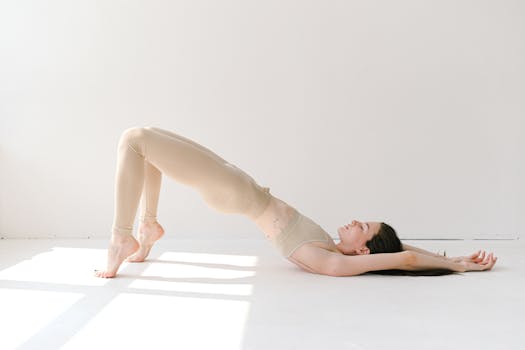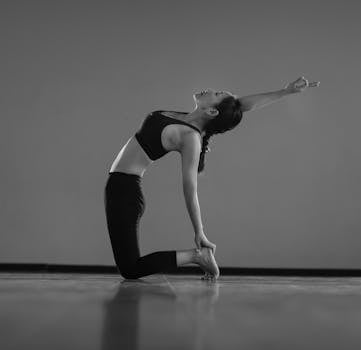
From Mat to Mind: How Yoga and Pilates Transform Your Mental Well-Being
Introduction to Yoga and Pilates for Mental Health

Yoga and Pilates for mental health has been a topic of interest for me for a while now. As someone who has struggled with anxiety and depression, I was skeptical about trying out these practices, but I was desperate for a solution. So, I decided to give them a try. I started with yoga, and then I moved on to Pilates. And let me tell you, it has been a game-changer for my mental well-being.
From reducing stress and anxiety to improving my mood and overall quality of life, yoga and Pilates have been a lifesaver for me. In this article, we will explore the benefits of yoga and Pilates for mental health, how they can transform your mind, and provide you with some tips on how to get started with these practices.
Benefits of Yoga for Mental Health

Yoga is an ancient practice that originated in India over 5,000 years ago. It is a combination of physical postures, breathing techniques, and meditation that can help reduce stress and anxiety, improve your mood, and increase your overall sense of well-being. Some of the benefits of yoga for mental health include:
- Reduced stress and anxiety: Yoga has been shown to reduce the production of stress hormones like cortisol, which can help alleviate anxiety and depression.
- Improved mood: Yoga can help increase the production of neurotransmitters like serotonin and dopamine, which can help improve your mood and reduce symptoms of depression.
- Increased focus and concentration: Yoga can help improve your focus and concentration by training your mind to stay present and aware.
- Better sleep: Yoga can help improve your sleep quality by reducing stress and anxiety, and promoting relaxation.
Benefits of Pilates for Mental Health

Pilates is a form of exercise that was developed in the early 20th century by Joseph Pilates. It is a low-impact form of exercise that focuses on strengthening your core muscles, improving your posture, and increasing your flexibility. Some of the benefits of Pilates for mental health include:
- Reduced stress and anxiety: Pilates can help reduce stress and anxiety by promoting relaxation and reducing muscle tension.
- Improved mood: Pilates can help improve your mood by releasing endorphins, which are natural mood-boosters.
- Increased energy: Pilates can help increase your energy levels by improving your circulation and reducing fatigue.
- Improved body awareness: Pilates can help improve your body awareness by increasing your awareness of your body position and movement.
How to Get Started with Yoga and Pilates

If you are interested in trying out yoga and Pilates, here are some tips to get you started:
- Find a local studio: Look for a local yoga or Pilates studio in your area and sign up for a class.
- Follow online classes: There are many online classes and tutorials available that can help you get started with yoga and Pilates.
- Invest in a good mat: Invest in a good quality yoga or Pilates mat that can provide you with the necessary support and grip.
- Start slow: Start with beginner classes and gradually move on to more advanced classes as you become more comfortable with the practices.
Conclusion

In conclusion, yoga and Pilates are two practices that can have a transformative impact on your mental well-being. By reducing stress and anxiety, improving your mood, and increasing your overall sense of well-being, these practices can help you live a happier and healthier life. So, if you are struggling with mental health issues, I highly recommend giving yoga and Pilates a try.






